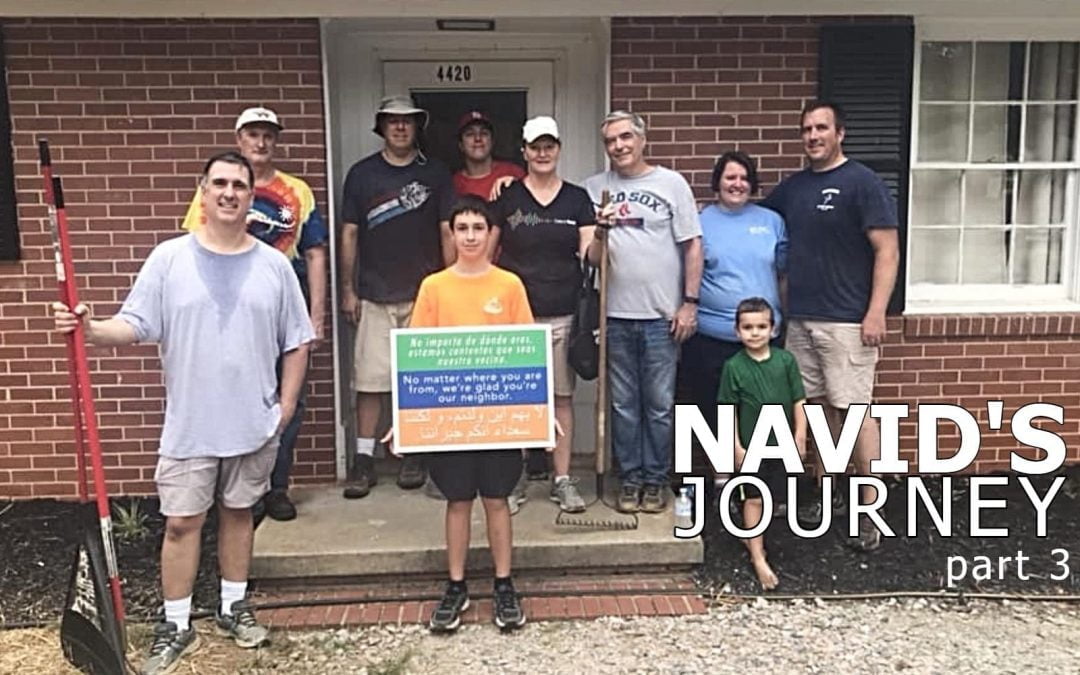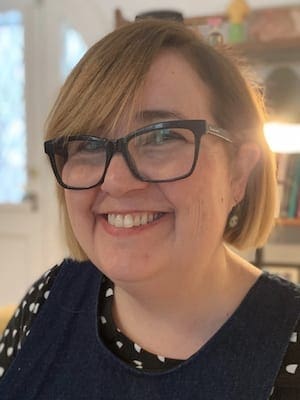Editor’s note: This is the third of a three-part series. Part one is available here. Part two is available here. *Navid’s real name has not been used to protect his identity.
Once Navid* knew that he would be coming to North Carolina, the beloved community in Raleigh began preparing for his arrival.
Joy and Ron Craig coordinated with their church, Mount Carmel Baptist Church in Chapel Hill, pastored by Barrett Freeman.
They put Navid on the prayer list, arranged for needed donations and began talking to their church community about his arrival.
Members of the church offered to help Navid, and one member in particular, who worked in the same occupation as Navid before he left Iran, worked with Navid to retrain him on skills lost during seven years in a detention camp.
Forest Hills Baptist Church in Raleigh notified Pastor Asad, the minister for their Iranian Christian Fellowship, and he reached out to see what he could do to prepare for Navid’s coming.
Welcome House became Navid’s lifeline.
Joy took pictures of the inside of the house, the kitchen and living room and bedrooms, and Navid walked those halls in his mind every day while waiting to depart Papua New Guinea.
Navid arranged with Marc and Kim Wyatt to get the address of Welcome House. None of us could figure out why he would want it; after all, he’d be met at the airport and taken there by volunteers.
I discovered what he was doing when he sent me pictures of Welcome House on Google Maps. “Look at my beautiful new home!” he exclaimed.
By the time Navid arrived, he knew every inch of the neighborhood around Welcome House.
As he told me, “I have walked these streets so many times. This was my house, and I would look at my grocery store and my doctor’s office and my park.”
As Navid boarded the plane in Papua New Guinea for North Carolina, he sent me this message: “After 2,200 days of being homeless, I am finally going home.”
And he had a true Baptist homecoming when he arrived in the Raleigh airport two days later.
Joy and her daughter, members of Mount Carmel Baptist, Pastor Hashemi and members of the Iranian Christian fellowship were there to meet him – all holding signs welcoming Navid and waving American flags.
Navid sent me pictures of his room at Welcome House and what was waiting for him in the kitchen: the first peach he had eaten in seven years.
He fell into a warm, welcoming bed made just for him and slept like he hadn’t in seven years. The next morning, he told me it all felt like a dream.
Welcome House, Mount Carmel Baptist and the Craig family continued to provide radical hospitality to Navid, loving the stranger among them.
This was hospitality not just as belief, but as practice, and Navid simply wouldn’t have survived without it.
A few days after he arrived, Ron and Joy took Navid to church with them at Mount Carmel. The pastor called out his name and introduced him to the congregation.
Navid told me that this simple act had overwhelmed him, and he was in tears. For seven years, he had been referred to not by his name, but by the boat number on which he arrived.
Part of the process of dehumanization used by guards at the refugee detention camps was only to call men by their boat numbers, and never their names.
In that simple act of recognizing Navid and welcoming him to the congregation, Mount Carmel had reminded him that he, too, was made in the image of God.
In addition to the usual cultural hiccups, after being in a detention camp for seven years, everything was new and unusual for Navid.
How do I use the washing machine? How do I open a bank account or get a driver’s license? What in the world are deviled eggs?
Navid needed assistance with questions big and small, and the beloved community was there to answer them.
When Navid was ready to move into his own apartment, supporters of the Welcome House Community Network collected furniture, and Joy and Ron organized a refrigerator.
Marc and the Welcome House team moved Navid in. For the first time in his adult life, Navid now has his own room in an apartment.
Church members from Mount Carmel are now working with Navid to find employment, and a former Welcome House resident, himself a newcomer to the U.S., is giving Navid driving lessons.
I wasn’t able to be at the airport in Raleigh when Navid first arrived, but I flew down from Toronto to see him just two weeks after he arrived. Up to this point, we had only seen each other on video screens.
I was filled with nervous anticipation as I walked from the plane toward baggage claim. What if he didn’t even recognize me?
But as soon as I came down the escalator, I saw him holding a bunch of flowers. We embraced tightly, then Navid said, “I can’t believe it. You’re real. You are real.”
I know Hebrews tells us that faith is “the evidence of things not seen.” But at that moment I couldn’t help but think of the disciple Thomas, who had to stick his fingers in Jesus’ wound in order to believe.
Faith is sometimes the thing seen, not unseen. Loving the stranger in our midst is not about the stranger, it is about us.
Welcoming Navid into my life may have helped him, but I am the one whose life has been forever changed through his life of costly grace.
He has reminded me of why we are called to do justice, to love kindness and to walk humbly with God.
And through getting to know Navid, I have recovered my faith in the beloved community because I have seen them at work, welcoming the stranger and not building a wall.
Author’s Note: Laura Beth and her husband are currently sponsoring Navid’s roommate on Manus Island, as well as three other refugees from Manus, to come to Canada. They will arrive in the next one to two years. The U.S. government continues to resettle men from Manus Island but has said it will end the resettlement program in December 2019.


